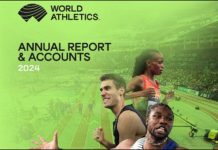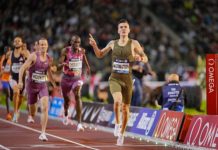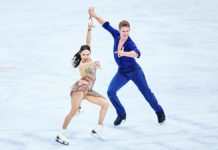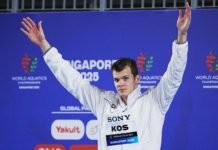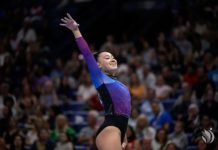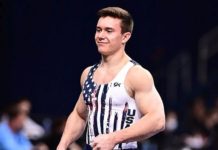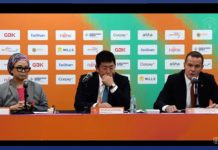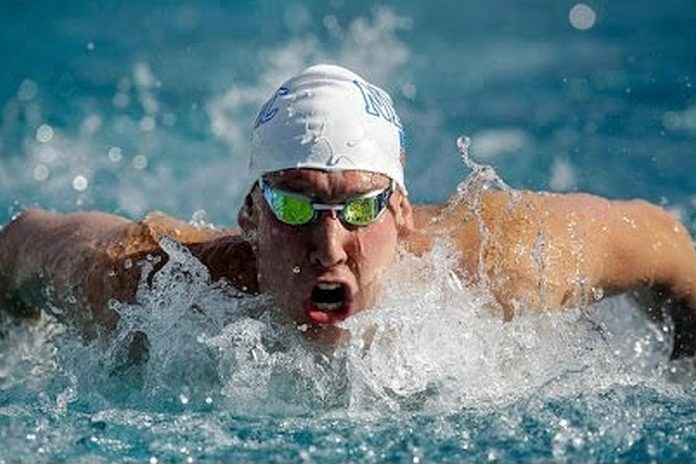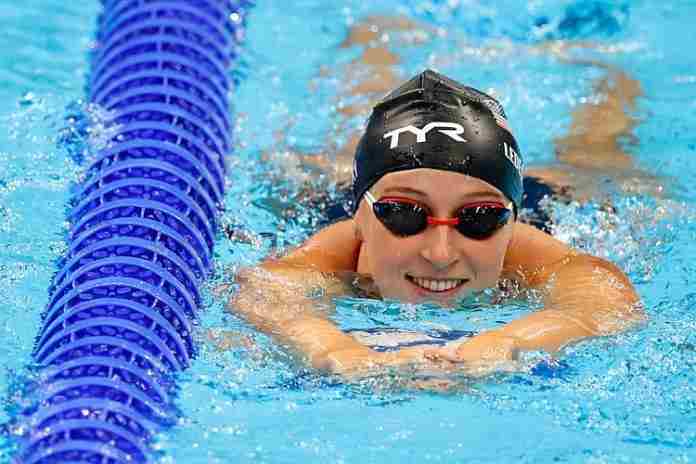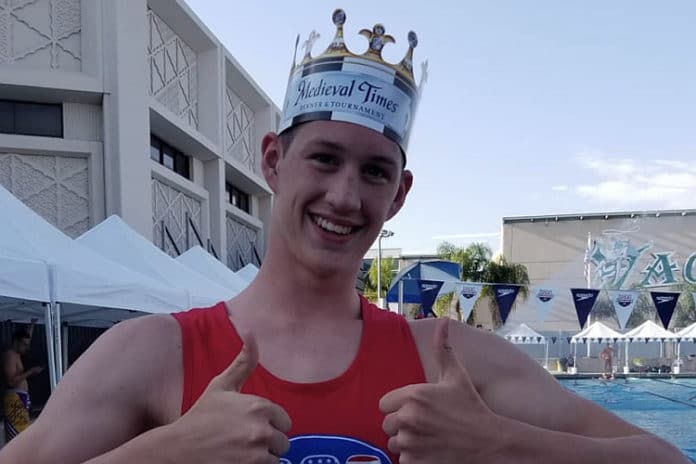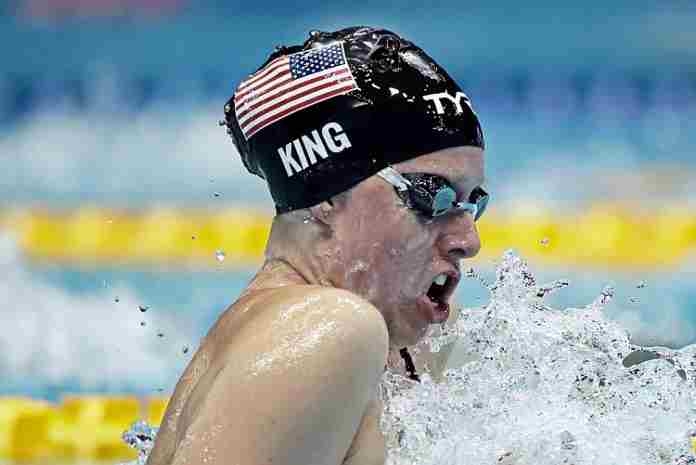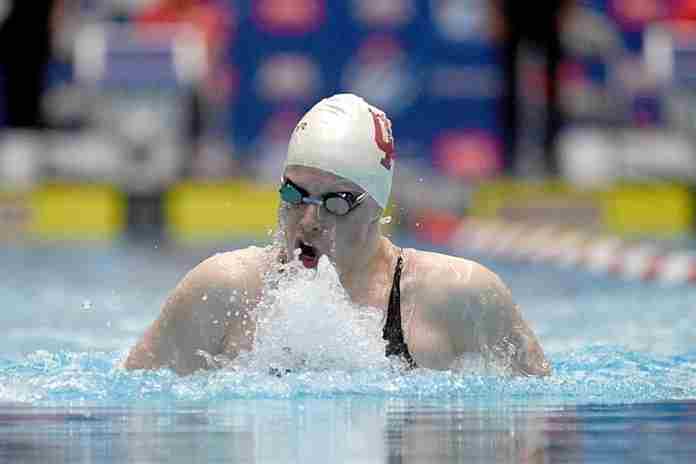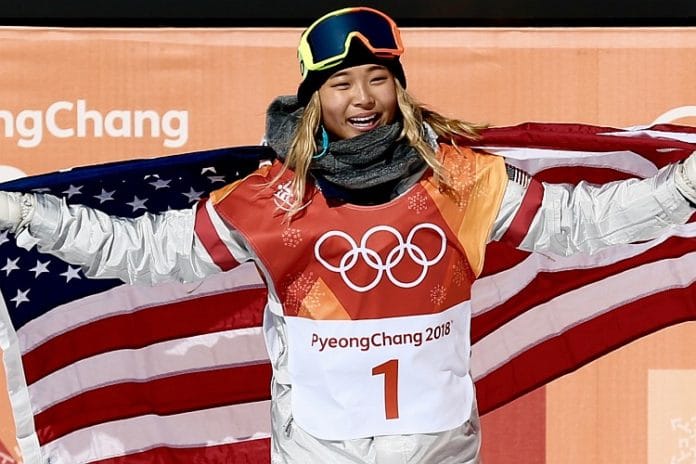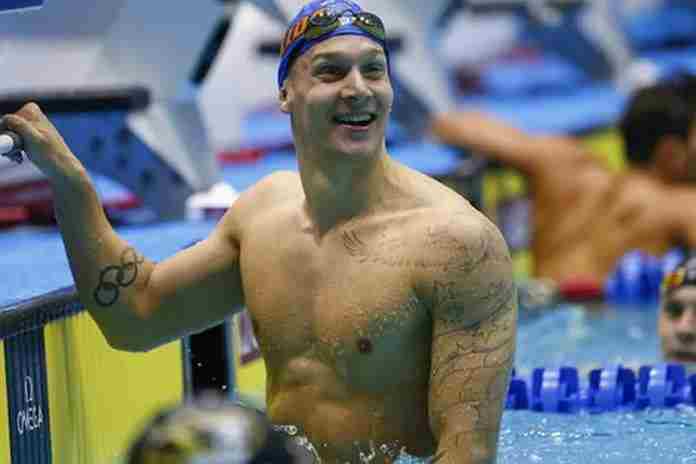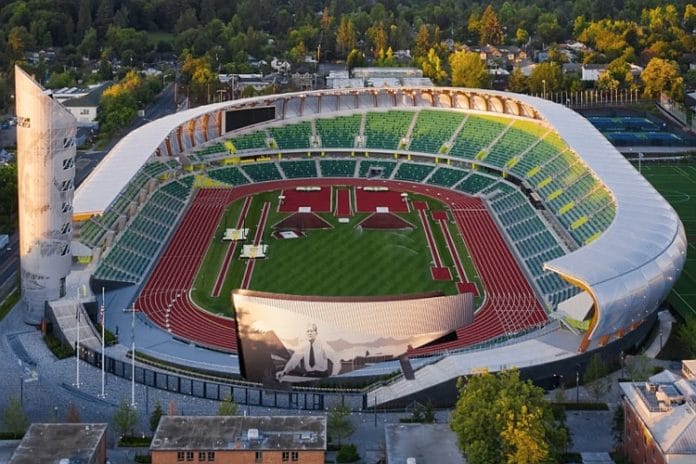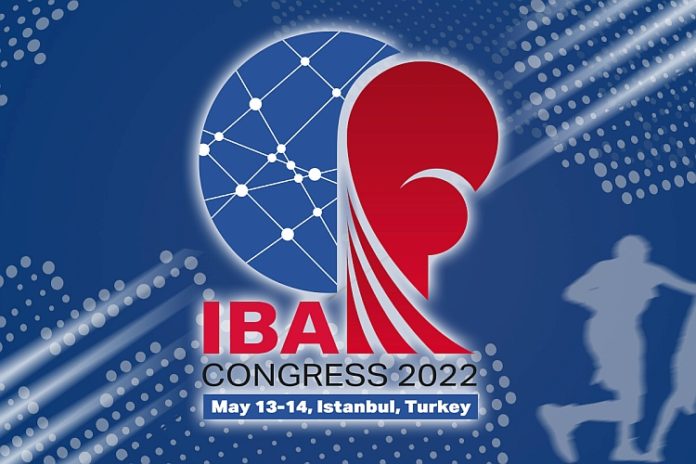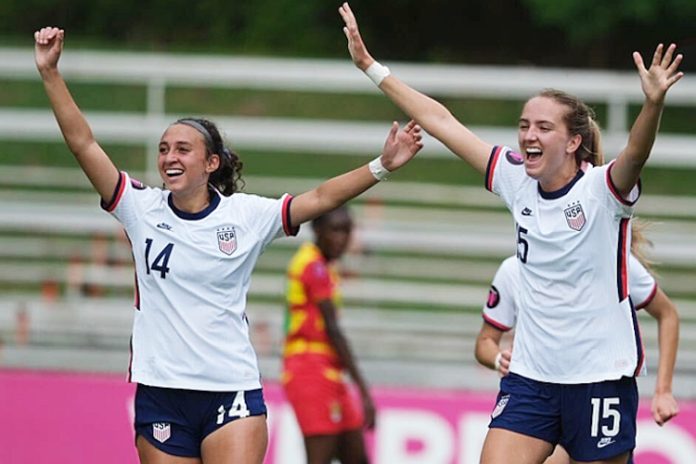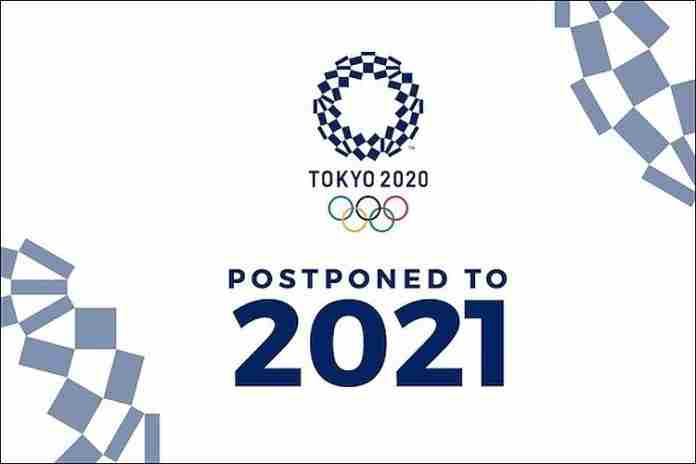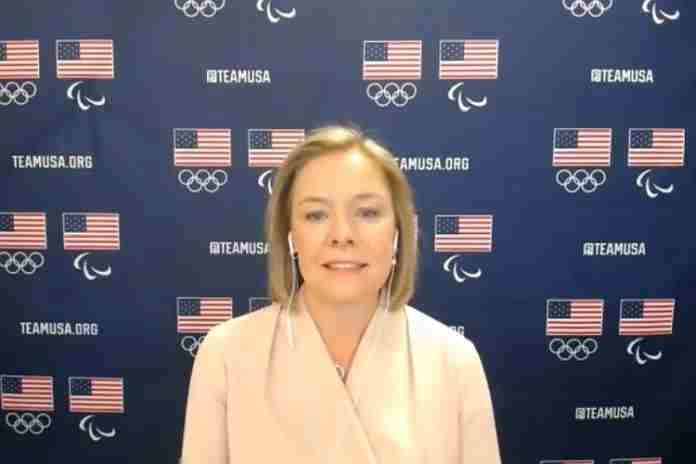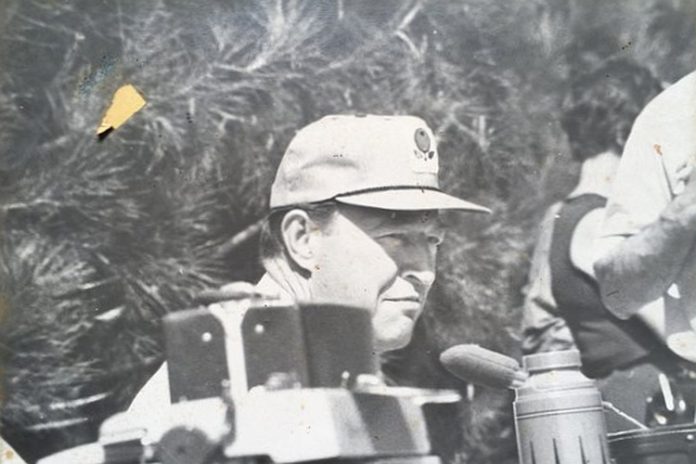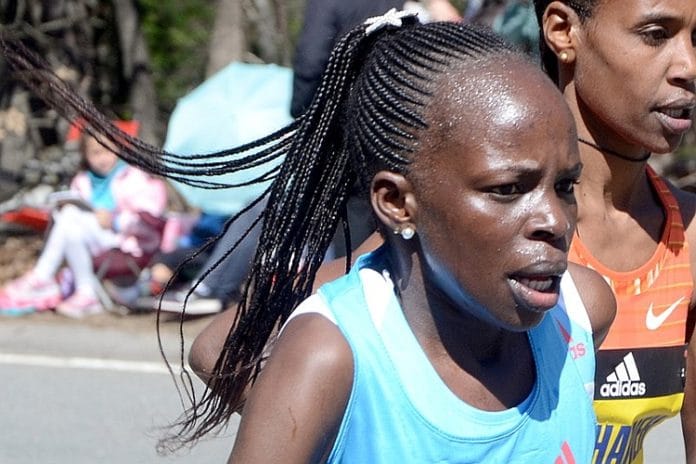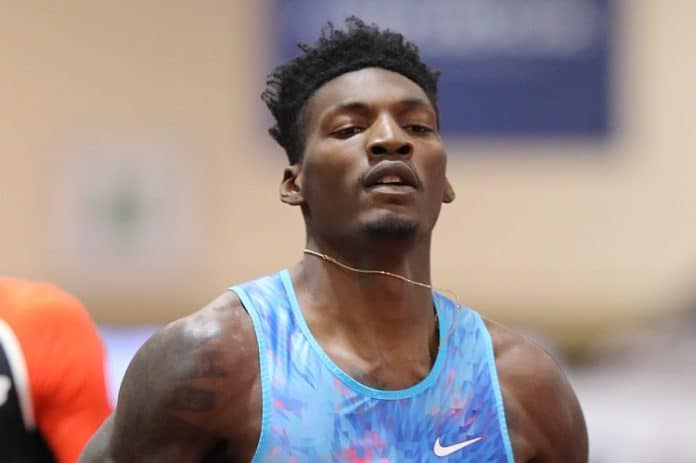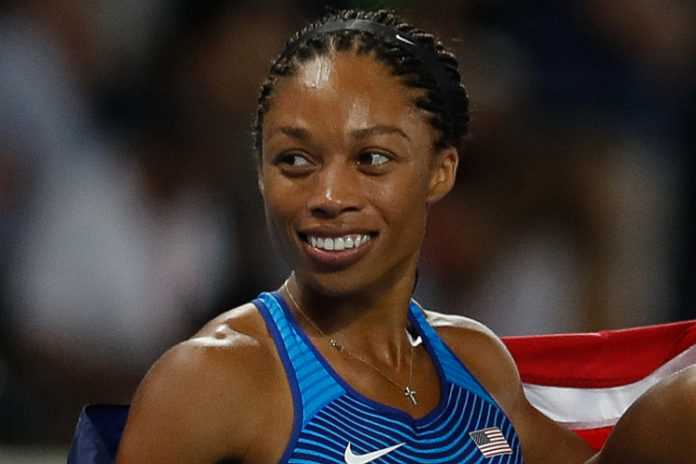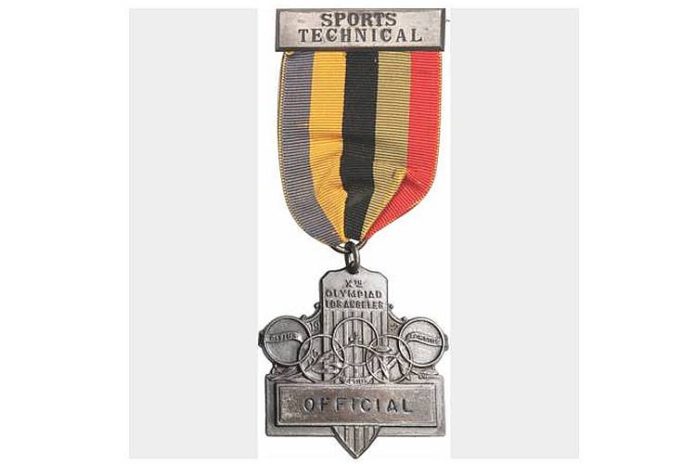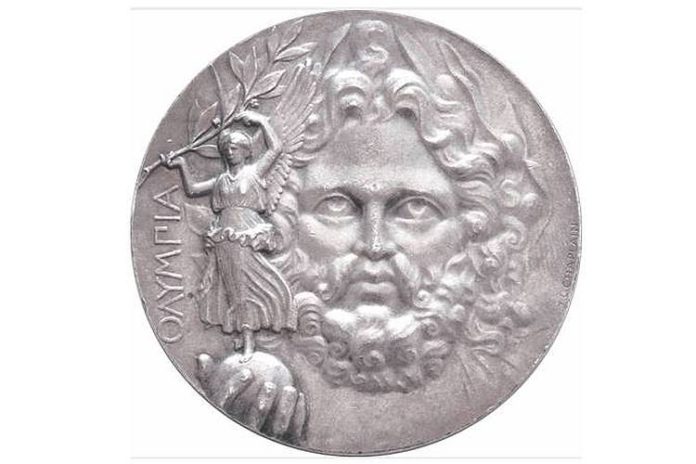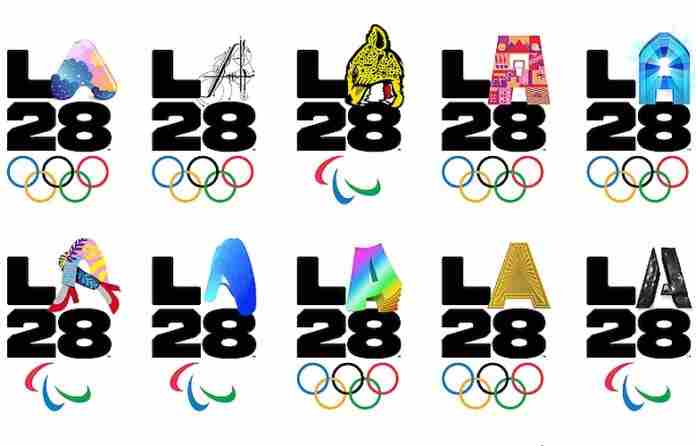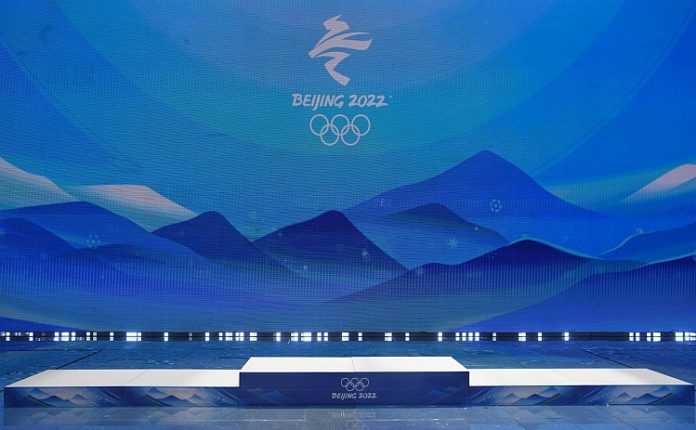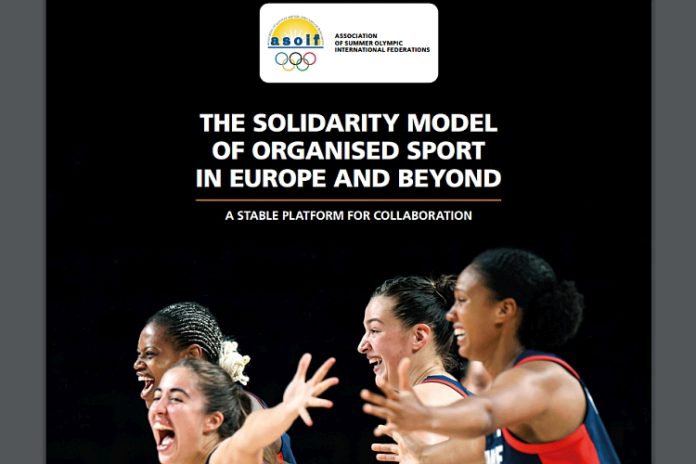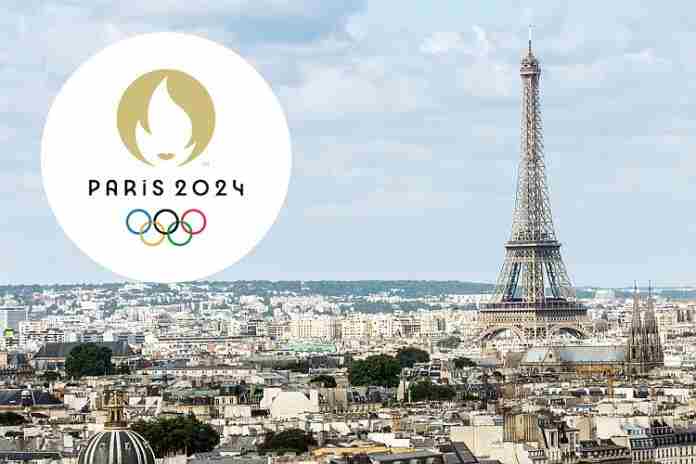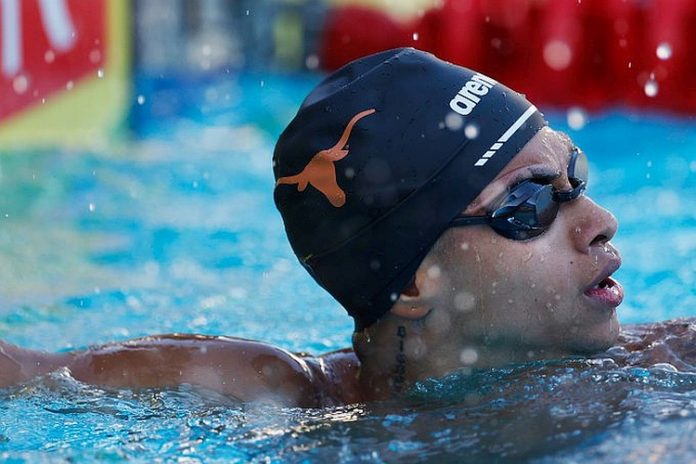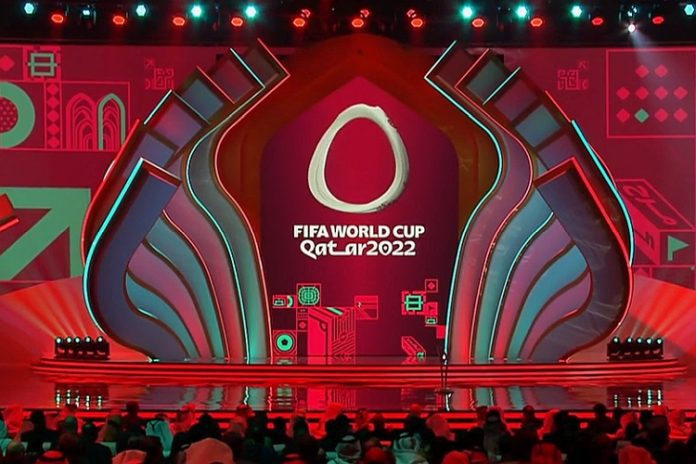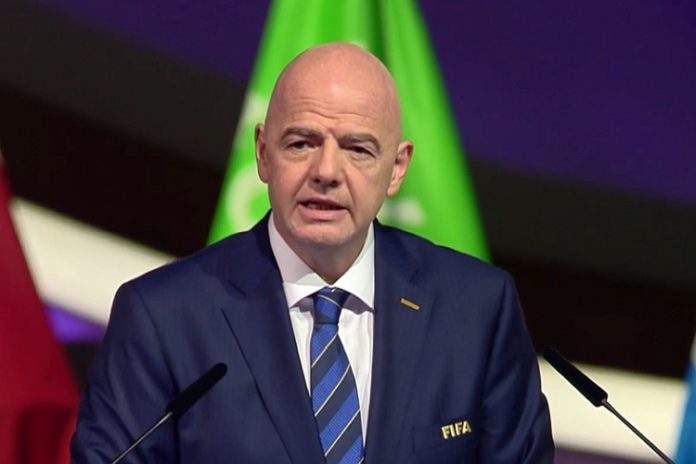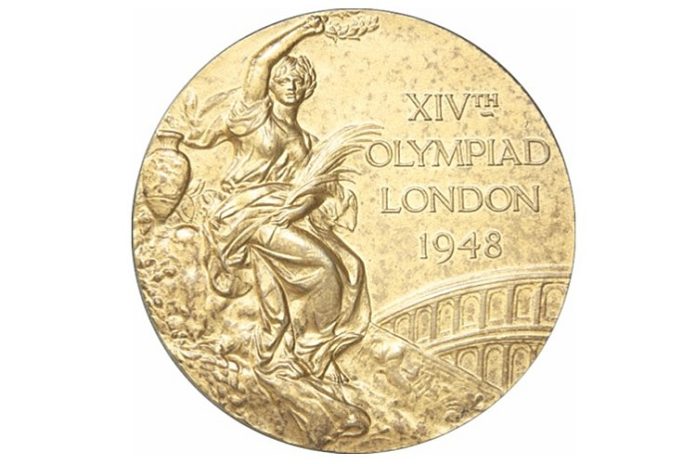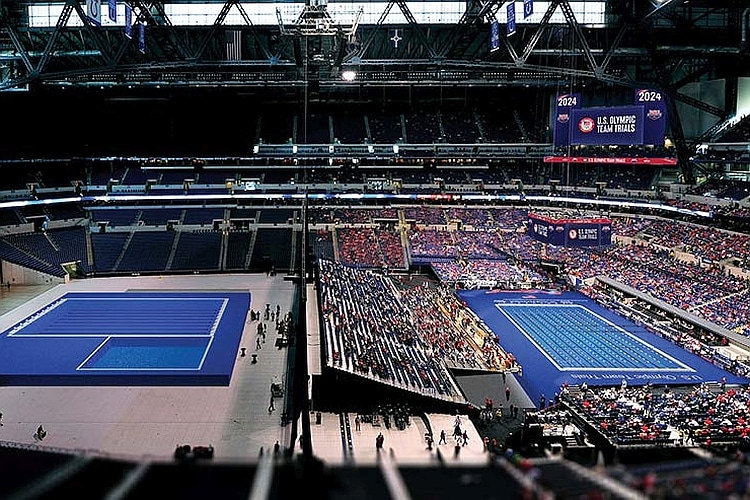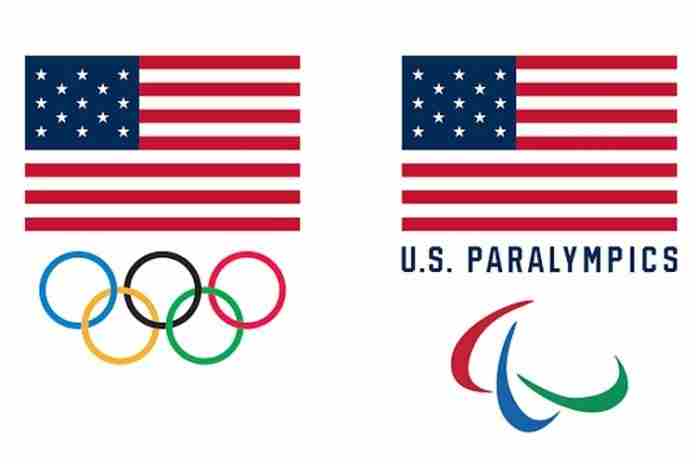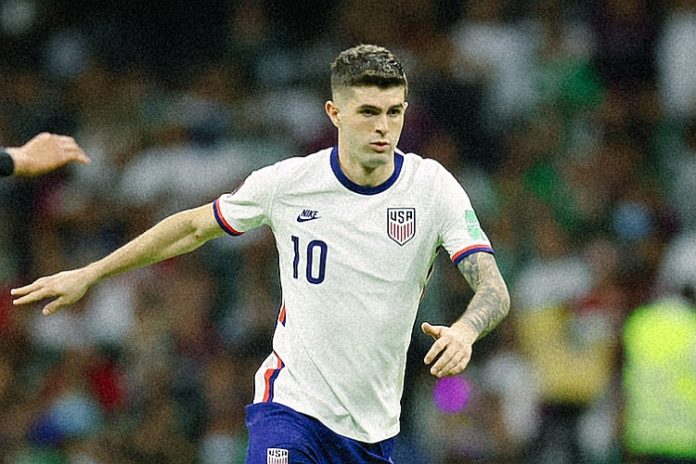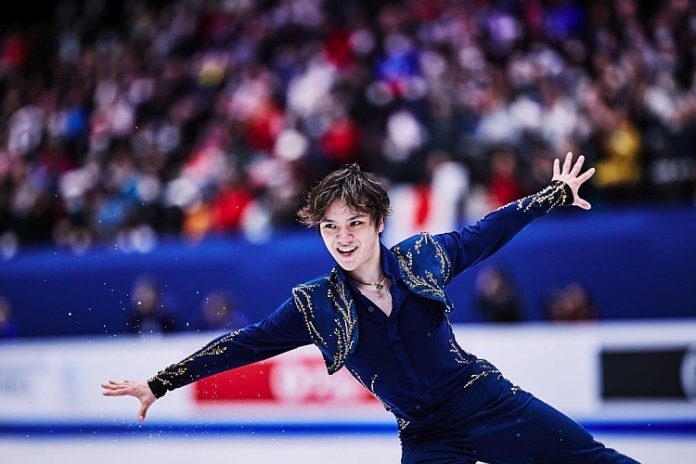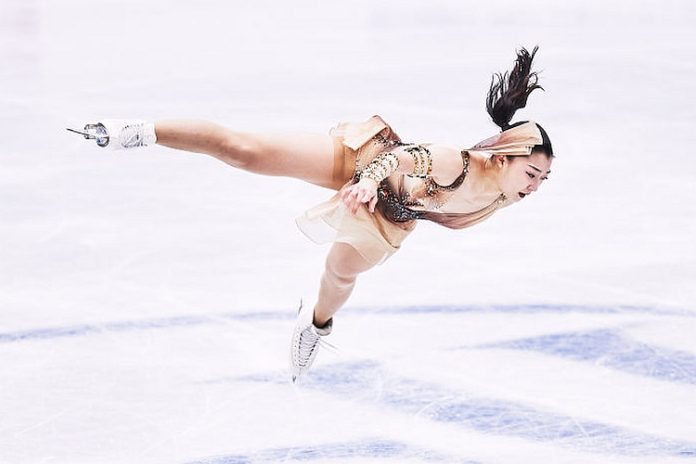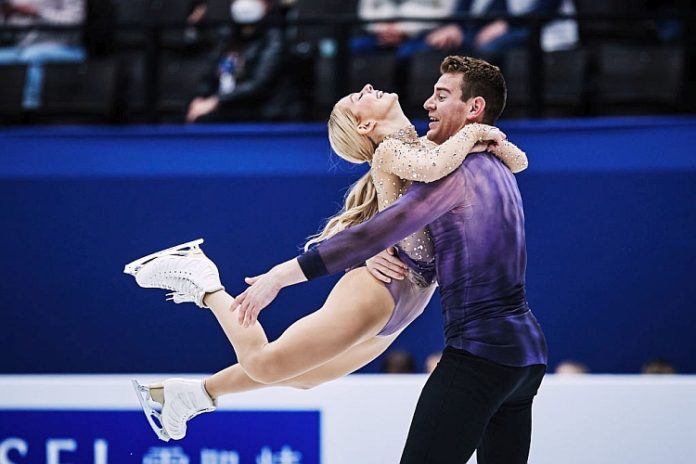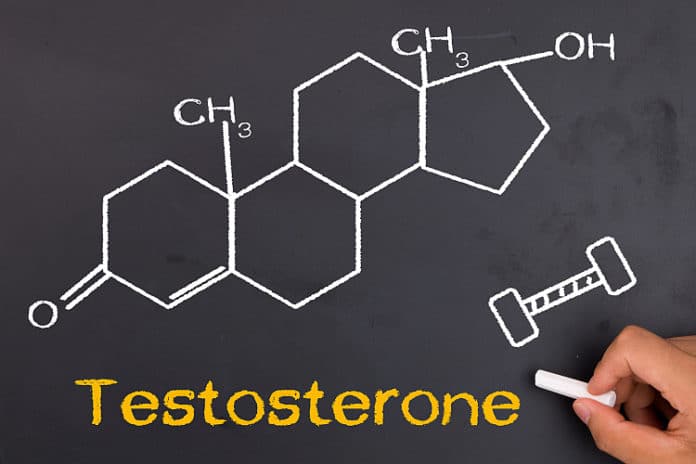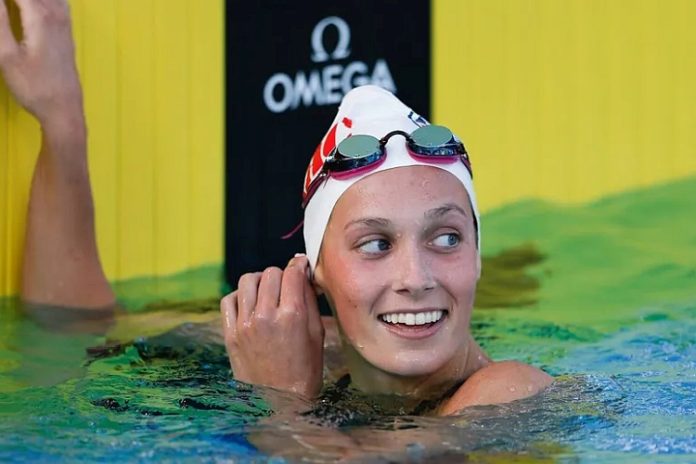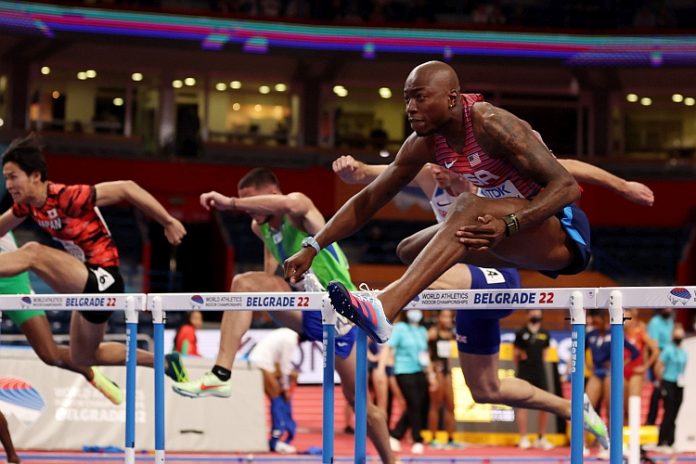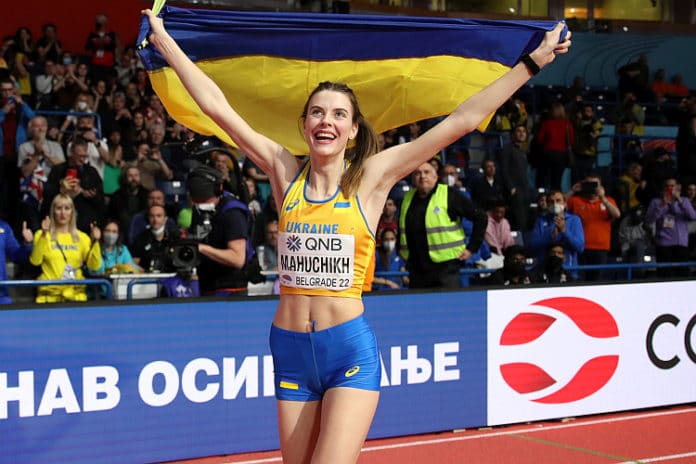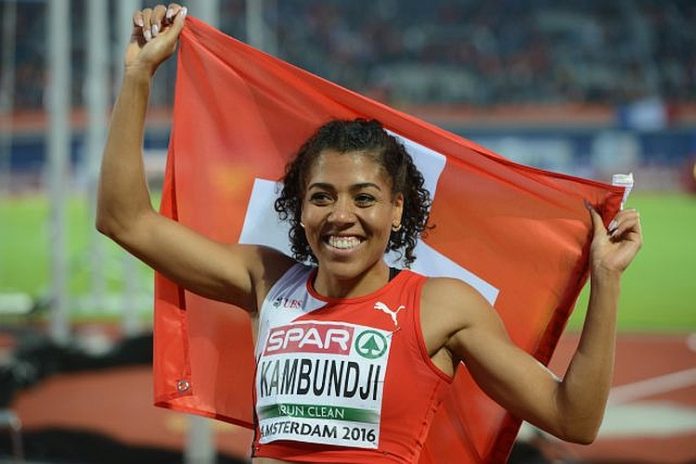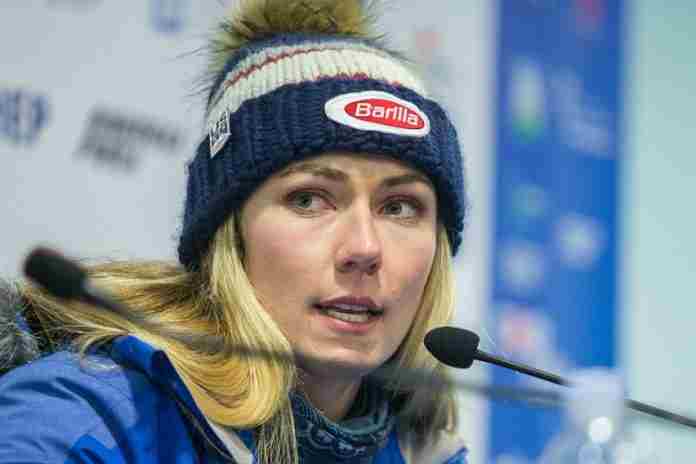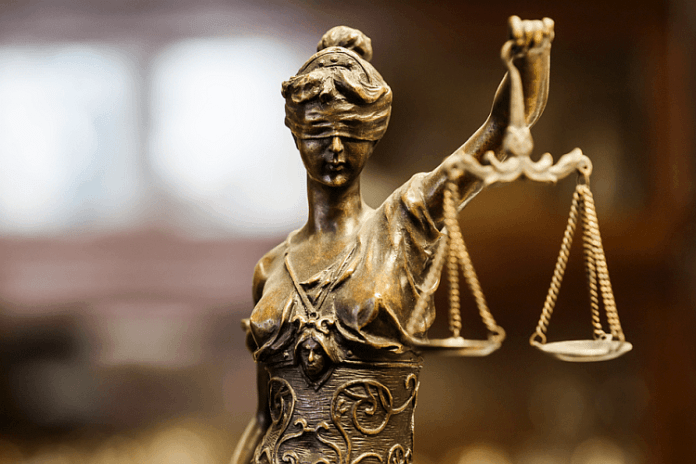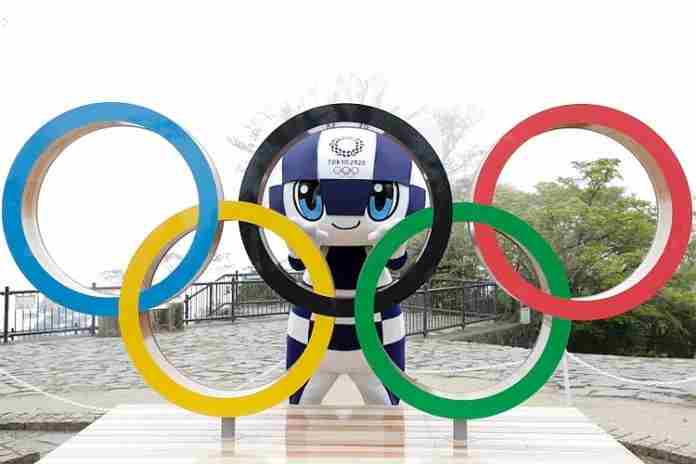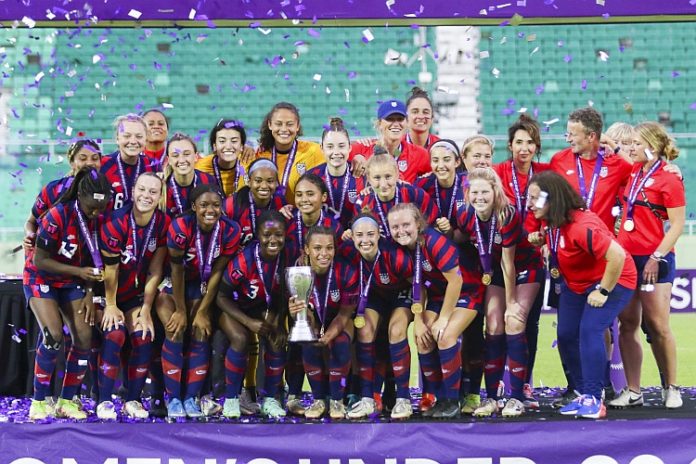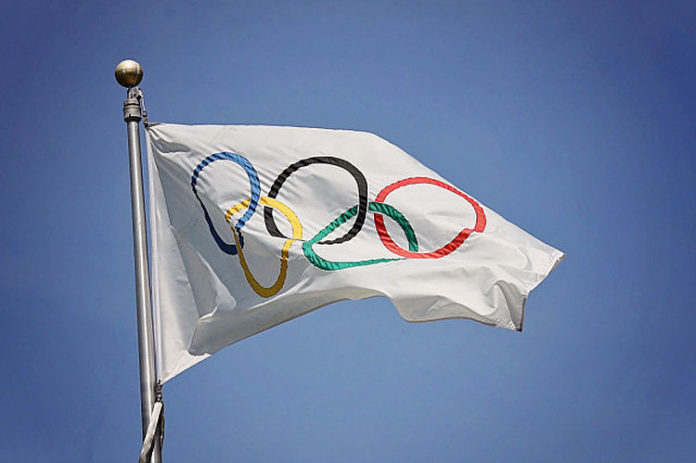(★ So grateful to our 50 donors, who have covered 83% of our site costs for services for the first six months of 2022. If you enjoy this coverage, please donate here. ★)
(For our updated – as of 10 April – 620-event International Sports Calendar for 2022 and beyond, by date and by sport, click here!)
Headline results of noteworthy competitions around the world/updated/:
● Artistic Swimming ● USA Artistic Swimming hosted its massive senior and junior national championships in Geneva, Ohio, which also included some guest competitors from other countries.
Among the U.S. performers, Maya Schwickert was the star, winning the women’s Solo Technical, ahead of Ryan Lewis, 71.8753-71.2661, then was third in the Solo Free (74.3833), behind Rebecca Moody (78.4000) and Bianca Hofstatter (75.5250).
Schwickert teamed with Una Tatar-Timburg to win the Duet Technical with 71.4192 points, well ahead of Lilly Ortiz and Valeria Calixto (66.1666). In the Duet Free, Schwickert scored again, this time with Natalie Franson, winning with 74.9667, beating Manasvi Pindi and Nathalia Valdez, 72.5250.
● Athletics ● The first of the 12 World Athletics Continental Tour Gold meets in 2022 was at the Flora Duffy Stadium in Devonshire (BER), with strong winds against the runners on the home straight keeping the times down at the USATF Bermuda Games on Saturday.
Olympic 110 m hurdles silver medalist Grant Holloway, seeing winds of up to 13 miles an hour against the runners, decided not to run on Saturday and there were others who joined him.
Nevertheless, the running events opened with Olympic champ Jasmine Camacho-Quinn (PUR) running into a 2.5 m/s headwind, still getting a world-leading win in 12.67, ahead of American Chanel Brissett (13.06).
None of the other events were good on the clock, but were very competitive. The most interesting race was the last on the track, in the men’s 100 m. U.S. star Noah Lyles had the fastest qualifier, but Canada’s Jerome Blake, Lyles and Olympic 200 m fourth-placer Erriyon Knighton were dueling to the finish and Blake got there first in an upset, 10.38 to 10.39 for Knighton and Lyles. That’s a major win for Blake, 26, whose best is a modest 10.06 last year. The wind was 5.6 m/s against the runners.
Olympic 400 m champ Steven Gardiner pushed to the lead off the turn to win the 200 m in 20.79, into a 4.7 m/s headwind, ahead of Jereem Richards (TTO: 20.86). London 2012 Olympic 400 m gold medalist Kirani James (GRN) was impressive in moving down the straight – against the wind – to win the 400 m in a very creditable 45.63. Shane Brathwaite (BAR) came on late to win the men’s 110 m hurdles in 13.78 (-3.8 m/s).
American Olympic finalist Teahna Daniels and 200 m bronze medalist Gabby Thomas were 1-2 in the women’s 100 m in 11.45 and 11.49 (-5.2 m/s) and former USC star Anthonique Strachan (BAR) won the 200 m with a late rush in 23.24 (-5.0 m/s). Jamaica’s Shericka Jackson, the 100 m bronze winner in Tokyo, won the 400 m in 51.40. Jamaica swept the women’s 400 m hurdles, with Shiann Salmon edging Rushell Clayton, 55.35-55.89.
In the two distance races, World Indoor Champion Ajee Wilson (USA) won the women’s 800 m from the front, with a surge into the home straight in 2:03.10, and Kenya’s Kamar Etiang barely held off a late charge from German Amos Bartelsmeyer, 3:45.26-3:45.35.
The wind badly damaged the field events. Rachel McCoy of the U.S. won the women’s high jump at 1.84 m (6-0 1/2), and fellow Tokyo Olympian Quanesha Burks (USA) won the long jump with her third-round jump of 6.77 mw (22-2 1/2w: +2.5 m/s).
Jamaica’s Shanieka Ricketts took the triple jump at 14.15 m (46-5 1/4). American Chris Benard won the men’s triple jump with a very wind-aided 16.57 m (54-4 1/2w) at 5.0 m/s!
Why was this meet in Bermuda? The early schedule showed a meet on this date in Miramar, Florida, but three-time U.S. 800 m Olympian, Hazel Clark – now with the Bermuda Tourism Authority – worked out a deal with USA Track & Field to put the meet in Devonshire, with a nice crowd on hand, despite overcast skies, a slight drizzle and the heavy winds.
¶
Olympic discus champion Valarie Allman of the U.S. extended her American Record with a win at 71.46 m (235-9) at the Triton Invitational in La Jolla on Friday (8th). The big toss came in the second round, moving her to no. 16 on the all-time list.
That improves on her 71.16 m (233-5) from 2021 and is the longest throw this century! In fact, it’s the longest throw since China’s Yanling Xiao in 1992 (71.68 m/235-2) and before that, since 1989. The drug-free world record?
Fellow U.S. Tokyo Olympian Rachel Dincoff was second with 61.27 m (201-0).
A day before, Sweden’s Olympic champ Daniel Stahl got a world-leader in the men’s discus, throwing 69.11 m (226-9) to win an invitational event in Chula Vista, California.
¶
Another world-leading mark came from U.S. Olympian Brooke Andersen, who won the women’s hammer at the Sun Angel Classic in Tempe, Arizona at 77.26 m (250-2).
¶
Sunday’s always-fast Rotterdam Marathon was a fight to the finish for Olympic silver medalist (and Somali-born) Abdi Nageeye (NED) and Leul Gebreselassie (ETH), with Nageeye getting the win as both were timed in 2:04:56.
A large pack crossed the halfway mark in 1:02:16, but only seven were left by 30 km and three by 40 km. While Reuben Kiprop Kipyego (KEN) fell back, Nageeye and Gebrselaisse raced for the line, with the Dutch star setting another national record with the win. Kipyego ended up third in 2:05:12.
Ethiopia’s Haven Hailu ran away with the women’s race, winning by 50 seconds in 2:22:01.
● Badminton ● The BWF World Tour’s Korea Open in Suncheon was a popular one with the home fans, as the hosts qualified finalists in four of five events and got three wins!
The Korean wins came in the women’s Singles, as Seyoung An defeated Pornpawee Chochuwong (THA), 21-17, 21-18; in the men’s Doubles for Min-hyuk Kang and Seung-jae Seo, over Fajar Alfian and Muhammad Rian Ardianto (INA), 19-21, 21-15, 21-18, and in the women’s Doubles, as Na-eun Jeong and Hye-jeong Kim sank Benyapa Aimsaard and Nuntakarn Aimsaard (THA), 21-16, 21-12.
In the Mixed Doubles, Kian Meng Tan and Pei Jing Lai (MAS) took down the Korean pair of Sung-hyun Ko and Hye-won Eom, 21-15, 21-18.
China’s Hong Yang Weng defeated Jonatan Christie (INA) in the men’s Singles final, 12-21, 21-19, 21-15.
● Curling ● /Updated/Sweden’s Niklas Edin did it again, leading his team to a fourth straight WCF men’s World Championships in Las Vegas on Sunday.
The 13-team round-robin ended with Brad Gushue’s Canadian rink the best at 10-2, ahead of Sweden (Edin: 9-3), with Italy (Joel Retornaz) at 8-4 and Scotland (Kyle Waddell) and the U.S. (Korey Dropkin) at 7-5.
In the Saturday play-offs, the U.S. took a 4-1 lead over Scotland after four ends and held on for a 6-4 victory, despite single points from the Scots in ends 7-8-9. That sent the U.S. on to face Canada, whom the Americans had tamed, 10-6, during the round-robin.
Gushue got off to a 2-0 lead against the U.S. in the second end and was up, 5-2, at the end of six. But Dropkin got close with two points in the ninth end to close to 6-5, but Gushue finished with two points in the 10th for an 8-5 final.
Italy scored four times in the first end and cruised to 10-4 win that advanced them to meet Sweden in the semis. That match turned in the fifth end, when the Swedes scored four times to take a 7-1 lead, and won, 8-4, to advance to the gold-medal match.
Gushue, the 2006 Olympic winner and 2017 World Champion, and Edin, the three-time defending World Champion and Beijing 2022 winner, are 1-1 in World Champs finals. Gushue won their first match-up in 2017, but Edin won in 2018.
In the bronze-medal match, Retornaz’s Italian squad crushed Dropkin and the U.S., 13-4, scoring four in the first end, and with a 7-4 lead in the sixth end, scored six times in the seventh. It’s the first-ever Worlds medal for Italy!
The gold-medal final was a see-saw affair, with Gushue’s squad leading by 3-0 after the second end, but Edin and Sweden scoring two in the third, one in the fourth and two in the sixth for a 5-4 lead. Undaunted, Gushue got points in the seventh and ninth ends to draw even at 6-6 going into the 10th. But Edin’s Swedes were game and took two points to win by 8-6.
This is the fourth straight Worlds win for Edin, his sixth overall and the second time in four years that he has edged Gushue’s Canadian squad in the gold-medal final. Edin is also the first ever to win the Olympic-Worlds double as a skip in the same season. He and his team are the best, no doubt.
● Cycling ● The 56th edition of the men’s Amstel Gold Race, on a hilly, 254.1 km route from Maastricht to Valkenburg, end in a two-man sprint as Poland’s Michal Kwiatkowski edged Benoit Cosnefroy (FRA) at the line in 6:01:19.
Cosnefroy was initially identified as the winner, but a review of the finish gave the race to 2014 World Road Champion Kwiatkowski, for his second win in this race (also in 2015). Said the winner:
“A tough finish, a tough sprint. I was super-confident that I could win, but at the same time, the last 50 metres were super-tough, when Cosnefroy still accelerated when I got to the side of him.”
Belgian star Tiesj Benoot was third, 10 seconds back, ahead of a pack of eight contenders who ended up 20 seconds back.
The women’s Amstel Gold Race (128.5 km) was a clear win for Italy’s Marta Cavalli, who broke away with less than 2 km remaining and got to the line in 3:17:41. That was four seconds ahead of Demi Vollering (NED), Liane Lippert (GER), Annemiek van Vleuten (NED), Kasia Niewadoma (POL) and Mavi Garcia (ESP).
American Coryn Labecki (nee Rivera) was ninth, nine seconds behind the winner.
¶
The six-stage Itzulia Basque Country looked to be a showcase for two-time champion Primoz Roglic of Slovenia, who won the opening time-trial stage and continued to hold the lead through Thursday’s fourth stage.
But he had a rough time in the uphill finish of the fifth stage, finishing 19th and fell to eighth as Belgium’s Remco Evenepoel took a two-second lead over Daniel Felipe Martinez (COL).
The final stage was another climbing exercise, with seven different uphills in the 135.7 km route from Eibar to Arrate. Spain’s Ion Izagirre won the stage in a final sprint of four riders, including Martinez. Evenepoel wasn’t far behind, but finished 24 seconds back of the lead group and that gave the win to Martinez.
The final tally showed Martinez at 21:59:36 in total, 11 seconds up on Izagirre in second, followed by Aleksandr Vlasov (RUS: +0:16) and Evenepoel (+0:21). It’s Martinez’s second career major multi-stage race win after the 2020 Criterium du Dauphine. Roglic ended in eighth.
¶
The UCI Mountain Bike World Cup opened racing in Cross Country in Petropolis (BRA), with 35-year-old Swiss superstar Nino Schuter showing he is as tough as ever.
The Olympic champ from Rio in 2016 and nine-time World Champion lost the lead in mid-race to emerging Romanian star Vlad Dascalu, but charged home on the final lap to win the seven-lap race at the line in 1:26:52 against familiar rival Maxime Marotte (FRA).
Dascalu took charge (barely) on the fifth and sixth laps, but Schurter had the second-fastest final lap to race to the line, with he and Marotte given the same final times. Dascalu finished third in 1:26:55.
Alan Hatherly (RSA) won the seven-lap men’s Short-Course final in 19:55, ahead of Thomas Litscher (SUI: 19:56).
In the women’s Olympic Cross-Country race, two-time Worlds bronze medalist Rebecca McConnell (AUS) stayed close to the front throughout, then charged to the lead on the sixth and final lap for a 17-second win in 1:29:41 over the 27.05 km course.
McConnell was third entering the final lap, but passed Dutch star Anne Terpstra and France’s 2021 seasonal champ, Loana Lecomte, to win, with Terpstra second and Lecomte, the leader for the first half of the race, third in 1:30:19. American Kate Courtney was ninth (1:34:01).
Three-time World Champion Pauline Ferrand Prevot (FRA) took the six-lap Short Course race in 19:55, just a second better than Laura Stigger (AUT) and Evie Richards (GBR: also 19:56).
● Equestrian ● The FEI World Cup Final in Leipzig (GER) included the Olympic disciplines of Dressage and Jumping, as well as Driving and Vaulting.
In the Dressage World Cup Final – Grand Prix Freestyle, Germany and Denmark dominated, with Tokyo Olympic gold medalist Jessica von Bredlow-Werndl (GER) – on TSF Dalera – winning before the home crowd at 90.836%. Denmark’s Cathrine Dufour (on Vamos Amigos) finished second – a welcome advance over her fourth-place finish in Tokyo – at 86.164%, with the seemingly immortal Isabell Werth (on Weihegold) taking the bronze (85.921%), after getting silver in Tokyo. Danes Carina Cassoe Kruth and Nanna Skodborg Merrald went 4-5.
The amazing Werth, 52, won her 13th career World Cup Final medal (5-5-3).
Von Bredlow-Werndl, Dufour, Werth and Skodborg Merrald were 1-2-3-4 (84.793%, 80.019%, 79.756% and 64.752%) in the Dressage Short Grand Prix earlier in the week.
The Jumping competitions included a two-stage final with a combined score and then Sunday’s finale over two rounds. In the Final I & II, American McLain Ward – the 2017 World Cup champ and a four-time Olympic team medalist – won with a combined score of 67 points, moving from fifth to first with the leading performance in the second final. Dutch rider Harrie Smolders was second (59), followed by Harry Charles (GBR: 57).
Sunday’s two-round Final III ended with a three-way tie – all with no faults – between David Will (GER), two-time Olympic silver medalist Jens Fredricson (SWE) and Martin Fuchs (SUI). In the overall Jumping standings, Fuchs – the 2018 World Equestrian Games silver medalist – was the winner with a total of just five penalty points across three rounds. Smolders was second with eight, Fredricson third (also with eight) and Britain’s Charles was fourth with nine.
● Football ● The U.S. women’s National Team faced Uzbekistan for the first time ever, in a late afternoon game in Columbus, Ohio, that ended with a 9-1 U.S. victory.
The American women had 70% of the possession for much of the first half and generated chance after chance, but no goals in the first 25 minutes.
The U.S. finally broke through in the 26th minute off a corner that landed on the head of Lindsey Horan, who pitched the ball forward to defender Alana Cook, who sent a header to the front of the goal for Andi Sullivan, who finished for a 1-0 lead in the 26th minute.
Off the kickoff, the U.S. got possession and Rose Lavelle took charge and played the ball ahead to Mallory Pugh on the left side. Pugh played a hard shot toward the goal and beat Uzbek keeper Laylo Tilovova at the near post for a devastating goal just seconds later, and a 2-0 lead.
Sophia Smith got a third goal for the U.S. in the 33rd minute, scoring off a long cross from Pugh on the left side and pounding a right-footed shot into the net from in front of the goal. Smith got another in the 35th minute, sending a left-footed rocket past Tilovova and the rout was on, with the U.S. speed, cutting ability and sharp passing shredding the Uzbek defense.
The U.S. finished the half with 74% of the possession and a 17-0 edge on shots.
Off the second-half kickoff, Lavelle got loose in the Uzbek zone and sent a seeing-eye pass to Catarina Macario, who dodged Tilovova and sent a right-footer into the net for a 5-0 lead in the 46th minute. Smith got a third in the 56th minute (6-0) and Jaelin Howell got her first international goal in the 64th for a 7-0 lead.
But Uzbekistan got a stunning goal on the 60th minute. A corner by Solikha Khusniddinova sailed through the U.S. defense in front of goal and found the left knee of Aziza Norboeva, and her shot sailed past keeper Alyssa Naeher for a 7-1 score. It was the first score against the U.S. during a home game since 2020, a streak of 17 straight matches.
Ashley Hatch got an eighth goal on a header in the 86th minute, popping the ball over Tilovova’s head on a punch-away attempt. Ashley Sanchez scored her first international goal on a clever move around a defender in the 90th minute for the 9-1 final.
At the whistle, the U.S. ended with 74% possession and a 33-1 shots advantage. The two sides will meet again on Tuesday, in Chester, Pennsylvania.
● Gymnastics ● The second leg of the FIG Rhythmic World Cup in Sofia (BUL) was a triumph for home favorite – and 2021 European Championships All-Around silver medalist – Boryana Kaleyn.
She won the All-Around at 127.300, comfortably ahead of Sofia Raffaeli (ITA: 124.550) and Stillana Nikolova (BUL: 123.800). American Lili Mizuno was sixth (111.300).
Kaleyn also won individual titles in Hoop (32.100, over Raffaeli, 30.300), Ball (32.650, over Raffaeli, 32.250) and Ribbon (over teammate Nikolova). Nikolova won on Clubs, scoring 31.850, ahead of Raffaeli (31.450).
Mizuno made the final in Hoop, finishing sixth (28.000).
● Rugby Sevens ● The fifth leg of the 2022 HSBC men’s World Rugby Sevens in Singapore got crazy from the start as South Africa – winners of all four tournaments this season, without a loss – was upset by the U.S. in group play by 12-7, thanks to a Perry Baker try at the end of the match. That ended a 36-match winning streak for the Blitzboks.
The U.S., Australia and New Zealand all finished 3-0 in their groups, with Fiji and Ireland both 2-1 in Group D.
In the playoffs, Fiji won tight matches against South Africa (19-14), Australia (19-12) and then won the final with a 28-17 thrashing of New Zealand. The U.S. lost to Ireland, 14-12, in the quarterfinals and ended up sixth. The Kiwis got past the Irish in the semis, 22-19; Australia won the third-place game over Ireland, 21-19.
After five of nine rounds, South Africa remains in the lead with 98 points, with Australia and Argentina at 83 each and the U.S. fourth at 67.
● Sailing ● The first of three legs in the Hempel World Cup Series, the 51st Trofeo Sofia Mallorca in Spain, concluded on Saturday, offering one of the first tests of the Paris 2024 classes in a single, Olympic Classes Regatta. There were some familiar faces on the podium.
Spain’s Jordi Xammar, the Tokyo bronze medalist in the men’s 470 class, won the new mixed-crew 470 racing, teaming with Nora Brugman (ESP) to win with 28 net points (and four race wins) to 45 for Italy’s Giacomo Ferrari and Bianca Caruso.
In the men’s 49er class, France’s Erwan Fischer and Clement Pequin built up a big lead and then survived the medal race against Ian Barrows and Hans Henken of the U.S., 50-53. The French won six races, but were only sixth in the medal race, vs. second for the Americans.
The women’s 49er FX class saw Tokyo bronze medalist Annette Duetz now teamed with Odile van Aanholt (NED) and they held off Olympic champs Martine Grael and Kahena Kunze (BRA) by 51-61, even with the Brazilians winning the medal race.
The men’s Laser class had Britain’s Michael Beckett score three wins and three seconds and finish with 51 net points to win, just ahead of Olympic gold medalist Matt Wearn (NZL), 51-57. The women’s Laser Radial class was a runaway victory for Canadian Sarah Douglas, sixth in Tokyo, over Britain’s Hannah Snellgrove, 28-59.
The new Formula Kite class for men was a 1-2 for France, with Theo de Ramecourt (13) and Benoit Gomez (20), also going 1-2 in the medal race. The women’s Kite winner was American Daniela Moroz, who won the medal race over Lauriane Nolot (FRA).
The men’s Foil, another new class, saw a victory for Britain’s Andrew Brown, 37-56, over Italy’s Nicolo Renna, and these two were 1-2 in the medal race. France’s Helene Noesmoen took the women’s Foil over Spain’s Pilar Lamadrid, finishing 1-2 in the medal race.
The mixed-crew Nacra 17 winners were Italy’s Olympic champs, Ruggero Tita and Caterina Banti, who dominated the racing with eight wins and just 16 points, to 52 for Finland’s Sinem Kurtbay and Akseli Keskinen.
● Shooting ● The ISSF World Cup in Shotgun finished in Lima (PER) on Thursday, with the U.S. leading the medal table with 11 total, including four golds (4-3-4).
The second-week Skeet competitions saw Peru’s Nicolas Pacheco get a 4-3 shoot-off win against Federico Gil (ARG) for the gold, with American Hayden Stewart third. Italy defeated Puerto Rico, 6-4, for the men’s Team Skeet victory.
The U.S. went 1-2-4 in the women’s Skeet final, with 2017 World Champion Dania Jo Vizzi taking the all-American final from Tokyo Olympian Austen Jewell Smith, 36-35, hitting her last seven shots. Lucie Anastassiou (FRA) was third, over Caitlin Connor of the U.S., 25-16. It was no surprise that the U.S. women won the Team event, shutting out Italy, 6-0.
However, in the Mixed Skeet Team final, Italy’s Domenico Simeone and Simona Scocchetti won a 4-3 shoot-out against Smith and Dustan Taylor, after a 5-5 tie in the five-round match.
The World Cup series continues this week in Rio de Janeiro (BRA) for Rifle and Pistol events through the 19th.
● Short Track ● /Updated/The delayed ISU World Championships finally took place in Montreal (CAN), with Beijing Olympic stars still in excellent form.
Hungary’s Shaoang Liu won the Olympic 500 m and took his second consecutive world title in the men’s 500 m in 40.573, ahead of Quentin Fercoq (FRA: 40.674) and Stijn Desmet (BEL: 40.710).
Liu was fourth in the Olympic 1,500 m final, but got to the top of the podium in Montreal in 2:15.096, winning by daylight over Canada’s Pascal Dion (2:15.644) and Desmet (2:15.716).
Sunday’s races started with the 1,000 m, which Liu won in style in 1:25.462, edging Koreans June Seo Lee (1:25.529) and Yoon-Gy Kwak (1:25.662). Dion took the 3,000 m Superfinal in 4:42.214 to 4:42.306 for Lee and 4:42.721 for Dutch star Sjinkie Knegt, with Liu seventh.
Added up, Liu won his second consecutive Worlds overall title, with 104 points, to 63 for Dion and 55 for Lee. Desmet finished fourth, with 39. At 24, Liu now owns four Olympic medals (2-0-2) and 13 Worlds medals (6-5-2).
In the women’s racing, Korean star Min-jeong Choi defended her 2022 Beijing 1,500 m gold with a convincing win in Montreal in 2:23.594. Canada’s Kim Boutin, who finished 10th at the Winter Games, got the silver, her third career Worlds medal in the event (0-2-1). Korean Whimin Seo was third (2:24.455).
Olympic relay gold medalist Xandra Velzeboer, 20, showed that she is the next-star-in-line for the Netherlands, winning the 500 m Worlds title in 42.476, ahead of Beijing bronze medalist Boutin (42.570), and Yara van Kerkhof (NED: 42.642).
But Choi would not be stopped. On Sunday, she won her third 1,000 m world title and her third 3,000 m world gold. She won the 1,000 m – where she was second in Beijing – in 1:27.956, just edging Boutin (1:28.076) and Velzeboer (1:29.144). Choi and Boutin were 1-2 again in the 3,000 m – 5:05.641 to 5:05.734 – with Seo third (5:06.840).
That gave Choi her fourth Worlds overall title – also in 2015-16-18 – with 107 points, to 84 for Boutin and 53 for Velzeboer. All this and still just 23, Choi has lots of skating ahead of her.
● Sport Climbing ● The IFSC World Cup season opened in Meiringen (SUI) with a Bouldering test for men and women, with Olympic champ Janja Garnbret (SLO) showing no post-Tokyo letdown.
Garnbret, now 23, led the qualifying with five tops, won the semi with four tops and cruised to the victory in the final with four tops and four zones. American Natalia Grossman, 20, the 2021 World Championships runner-up, scored the silver with three tops and four zones in the final.
No one else had more than one top, with Andrea Kumin (SUI) getting third with one top and two zones.
The men’s final on Sunday had two-time World Champion Tomoa Narasaki (JPN) in charge from the beginning. He led the qualifying, semifinals and won the final with two tops and two zones (3-6), ahead of teammate Yoshiyuki Ogata (also 2T3Z-5-19), and France’s Medji Schalck (2T3Z-7-9).American Colin Duffy was fifth (1T4Z-19-27).
● Swimming ● Britain, Canada, France and Italy were among multiple countries with national championships and/or World Championships selection meets during the week, with multiple world-leading marks:
● Men/100 m Free: 47.88, Lewis Burras (GBR)
● Men/400 m Free: 3:41.60, Lukas Martens (GER)
● Men/400 m Medley: 4:09.18, Duncan Scott (GBR)
● Women/200 m Medley: 2:10.58, Sydney Pickrem (CAN)
More swimming to come today; the U.S. Worlds selection meet comes 26-30 April.
You can receive our exclusive TSX Report by e-mail by clicking here. You can also refer a friend by clicking here, and can donate here to keep this site going.
For our updated, 620-event International Sports Calendar for 2022 and beyond, by date and by sport, click here!







